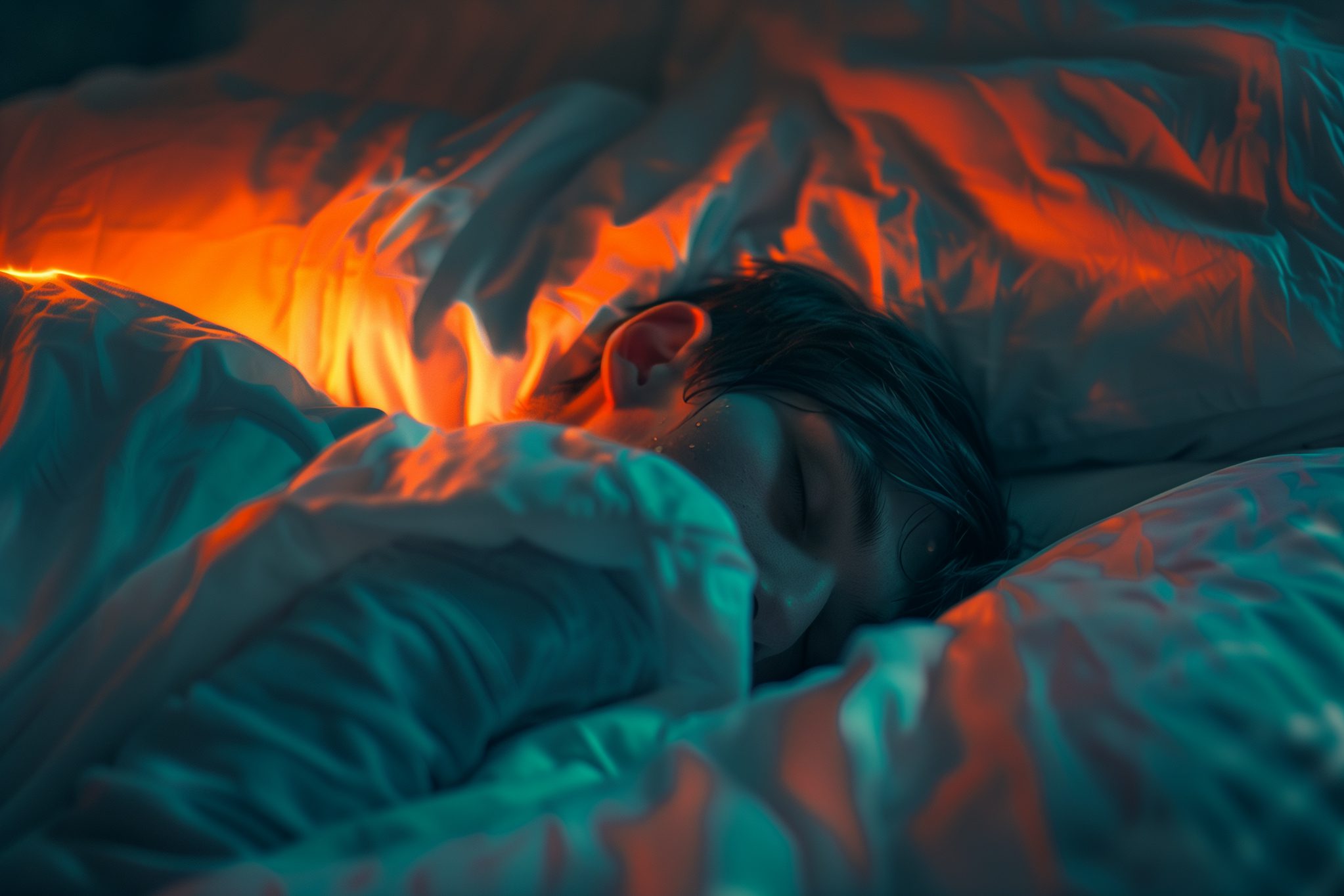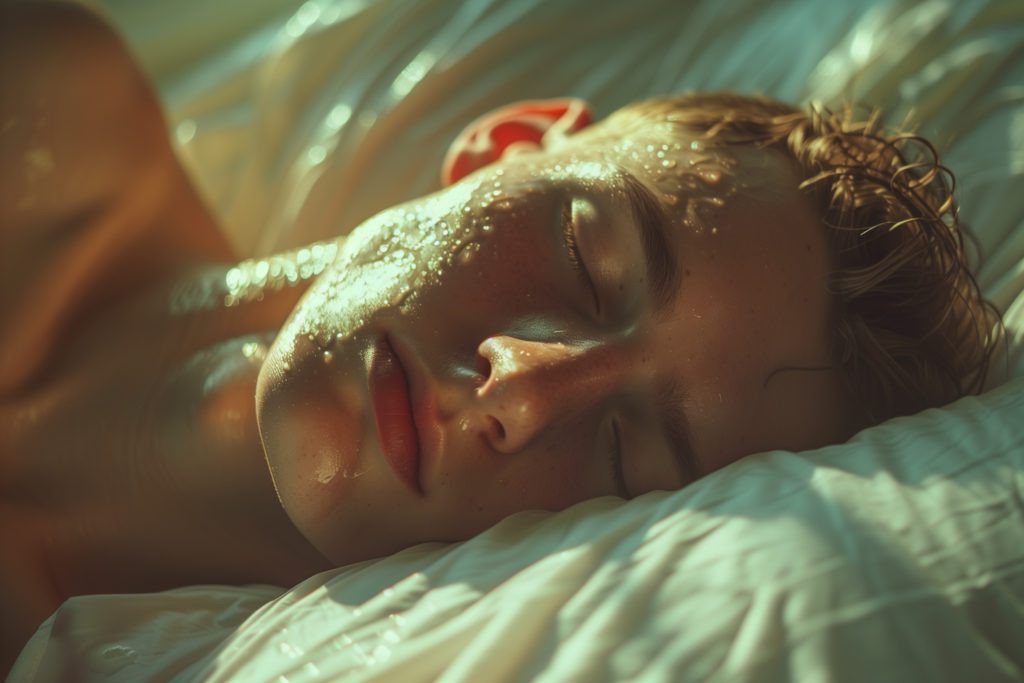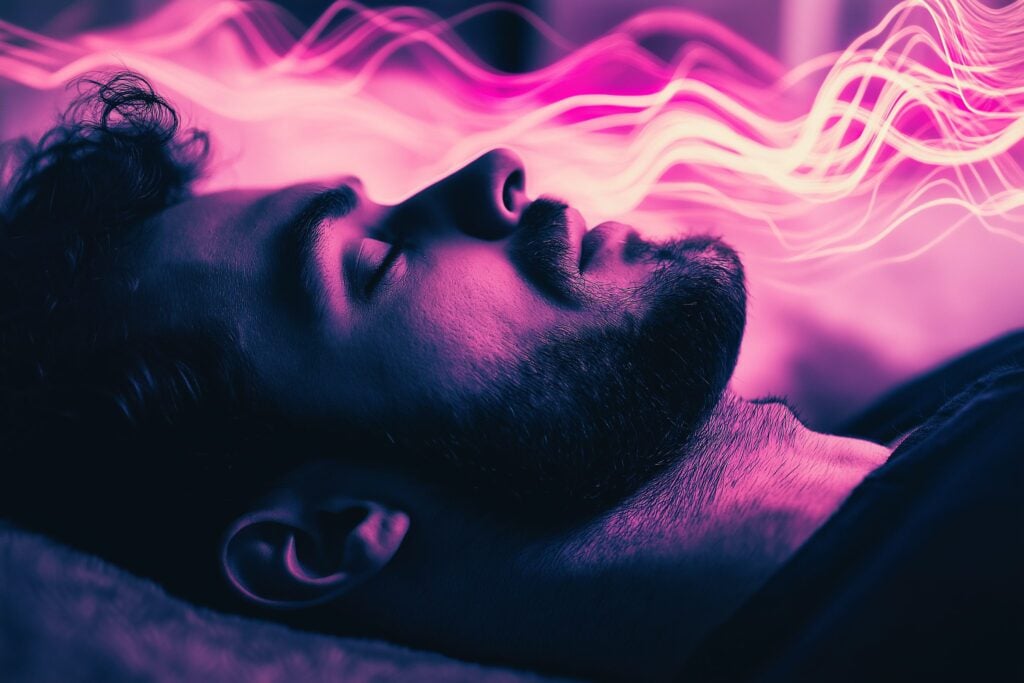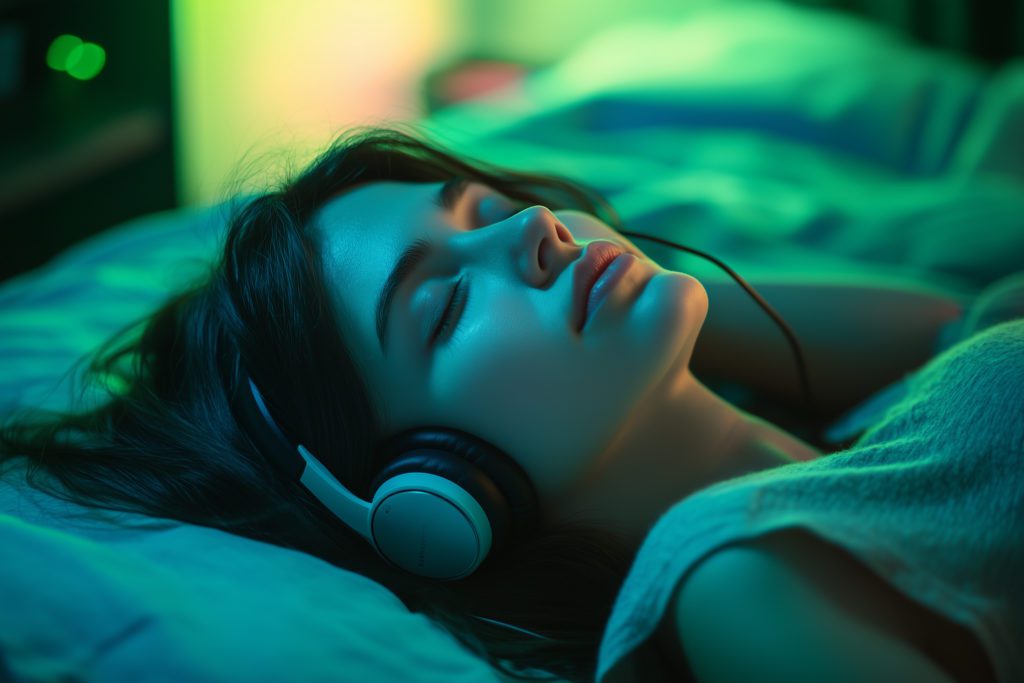
Effective Ways to Manage Night Sweats for Better Sleep
Explore possible causes of night sweats beyond menopause, and see what techniques you can implement to manage night sweats and sleep better.

Do you wake up in the morning covered in sweat? Not only is it an uncomfortable way to start your day, but sweating during the night may be affecting your sleep quality—if you’re sweating, your body is too hot, which means your body is focusing on cooling itself instead of the other crucial restorative processes of sleep.
While menopause is the most common cause of night sweats, other possible factors may be the temperature of your room or various sleep disorders. Thankfully, there are tips you can implement, no matter the cause, to alter your sleeping environment and leave you sweat-free throughout the night.
What Causes Night Sweats?
Night sweats refer to a drenching sweat that can soak your clothes and bedding. You may feel a sudden wave of heat that leads to sweating, a fast heartbeat, and reddening skin. In some cases, you may be so uncomfortable from the moisture that you wake up.
The most common cause of night sweats is menopause, which is the time in a woman’s life when her hormones go through a significant shift. The declining estrogen levels seen in menopause can cause the body to become exceedingly hot when the hypothalamus struggles to regulate body temperature, which initiates the body’s cool-down processes of hot flashes or sweating.
Other female-related causes of night sweats include premenstrual syndrome (PMS) and pregnancy, both of which are also related to shifting hormone levels.
Other possible causes of night sweats include infections, substance abuse, neurologic disorders, certain types of cancer, digestive diseases, sleep disorders, or mental health conditions. Night sweats may also occur as a side effect of a medication or simply because the bedroom is too hot.
How Do Night Sweats Disturb Your Sleep?
If you’re having night sweats, you’re likely also struggling to get a good night’s sleep. Let’s see why that is.
Our bodies go through a 24-hour cycle called a circadian rhythm, which primarily regulates its sleep-wake cycle. Essentially, your circadian rhythm helps your body recognize when to go to sleep and when to wake up.
Light is the biggest regulator of your circadian rhythm—when the sun goes down at night, your body starts to produce melatonin, the sleepiness hormone. Your body temperature also begins to drop, which further signals to the body that it’s time to sleep. This drop makes sense because, when you’re asleep, your body doesn’t move as much, and so its muscles and organs are not as active and do not require as high of a body temperature.
If you have night sweats, however, you have a higher body temperature at night, which can affect your sleep in a few ways. First, your body perceives a higher body temperature as a signal to wake up. This means that those who have night sweats may wake up in the middle of the night because their body thinks that it is time to start the day. To add to this sleep disturbance, your body’s high temperature may also make it hard to fall back asleep.
Beyond the discomfort from feeling too hot, sleeping in damp clothing can be unpleasant and may also wake you up during the night.
Both a higher body temperature and sweat-soaked clothing can cause you to spend less time asleep at night. Additionally, since they can wake you during the night, you may also spend less time in deep sleep, which equates to poorer quality sleep.
How to Manage Night Sweats
If you wake up during the night covered in sweat, give these tips a try to cool down and reduce the occurrence of night sweats.
Drop the Temperature
Having a bedroom temperature that is too warm can overheat your body, especially since it favors a lower temperature at night anyway. The ideal temperature for your bedroom at night is 70 degrees or lower, so drop your thermostat to meet this temperature or utilize a fan to help cool your room.
Update Your Pajamas
What you’re wearing can make or break your comfort, especially if you’re more susceptible to being hot. Avoid tight-fitting pajamas and instead opt for something loose and airy. For some people, sleeping naked may even be the best way to keep cool at night.
Avoid Temperature-Raising Foods
Spicy foods can cause your body temperature to spike and potentially cause sweating. While not spicy, alcohol and caffeine, as well, can act as stimulants that increase your heart rate, which can then cause your body temperature to spike.
If you experience night sweats, try to avoid these foods and beverages in the afternoon and evening.
Revamp Your Bedding
Your mattress may be making you hot by retaining heat—upgrade to a cooling mattress to help keep you cool during the night. Certain bedsheets can help with this task as well.
Maintain A Healthy Weight
Certain health conditions that are associated with night sweating, such as sleep apnea, have obesity as a risk factor. Knowing this, one way that you can help prevent night sweats, albeit a longer-term solution, is by losing weight.
Boost your sleep hygiene at the same time by exercising during the day and avoiding large meals right before bed.
See A Doctor
Sometimes, modifying your environment isn’t enough to stop your night sweats, and if they’re interfering with your sleep, it may be time to see a doctor.
For those with night sweats related to menopause, hormone therapy is an option, but other medications that may be used to manage any case of night sweats, not just those from hormonal causes, include:
- Antidepressants
- Anticonvulsants
- Megestrol
- Clonidine
- Oxybutynin
Talking with your doctor is the best way to determine if medication is needed or if you can implement other changes to help prevent night sweats.
Don’t Sweat It
Night sweats may be uncomfortable, but there are steps you can take to set yourself up for a cooler night, such as turning down the thermostat, using a fan, wearing light pajamas, and updating your mattress to one of a cooling variety.
Sometimes, these tips aren’t enough, and your night sweats need professional help. In these cases, don’t hesitate to reach out to your doctor—night sweats can interfere with your sleep, and anything that interrupts your sleep can cause a decline in your overall well-being.
Don’t let night sweats get you hot and bothered; instead, take action against hot nights and damp mornings and see how your sleep improves.

Written by
Jessica G
Medical writer freelancer who has written hundreds of articles on varying topics. Masters of Engineering degree in Biomedical Engineering.
Download Pillow
Get help
Press & News
Legal
Connect
X (Twitter)
Company
Copyright © Neybox Digital Ltd.


